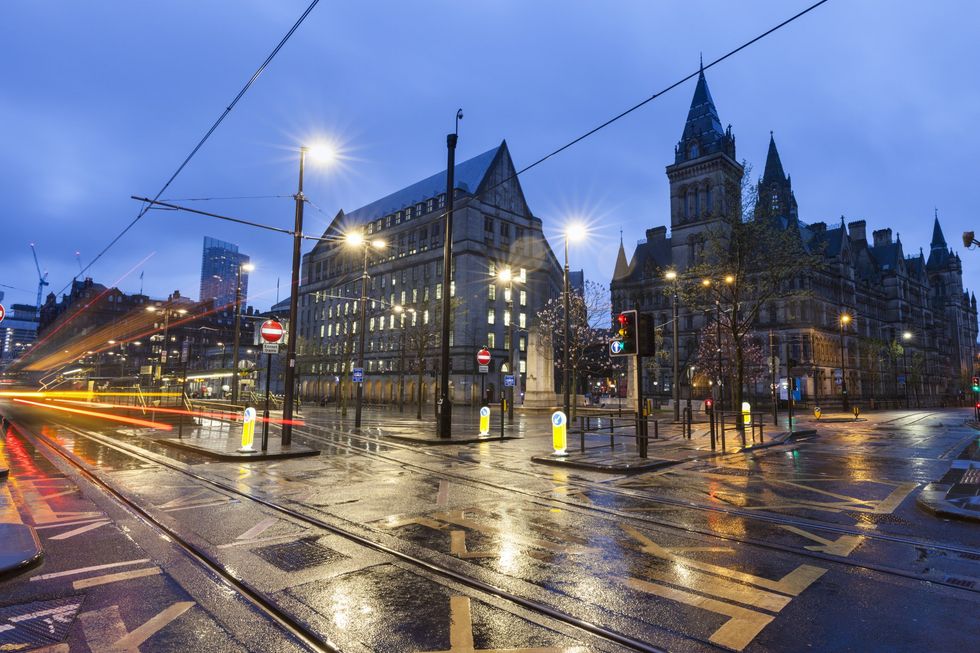Property crisis continues as UK room rents hit record £753 a month: 'Huge problem!'

Commuter towns see double-digit increases as renters flee cities for cheaper housing
Don't Miss
Most Read
Monthly room rental costs across Britain have surged to a record £753, the highest figure ever recorded, according to new data from SpareRoom.
The figure represents a 28 per cent increase over the past five years, whilst London has seen an even sharper 37 per cent rise in the same period.
The latest quarterly figures show rental prices continuing their upward trajectory despite a modest 0.8 per cent annual rise.
In the capital, the average room rent has stabilised at £995 a month, unchanged from 12 months ago but up from £980 in the previous quarter.
TRENDING
Stories
Videos
Your Say
The data highlights the deepening rental affordability crisis nationwide, with average prices surpassing the £700 threshold in mid-2023.
Wales has recorded the sharpest annual rental growth, with costs climbing 2.3 per cent to £586 a month.
Scotland has also experienced notable increases, with average room rents hitting a record £723 following a 0.7 per cent annual rise.
The South West of England posted the second-highest regional growth at 1.5 per cent, while East Anglia and the West Midlands both saw rises of 1.3 per cent.

Room rents across Britain have hit a record high of £753 per month, new figures from SpareRoom reveal
|GETTY
In Northern England, the North West increased by 1.0 per cent to £611. The North East remains Britain’s most affordable region for room rentals despite a slight 0.4 per cent fall.
Northern Ireland also experienced a 0.4 per cent decrease, bringing average costs to £571.
Rising city rents have driven more tenants to commuter areas.
SpareRoom reports heightened demand for suburban and satellite locations, with several key commuter hubs recording sharp rent hikes.
Latest Development

The North East remains one of the most affordable regions
|GETTY
St Albans, just 20 minutes from London St Pancras railway station, saw rents jump 10.2 per cent to £847.
Brentwood, served by the Elizabeth line, rose 5.4 per cent to £788 a month.
Other commuter towns showing significant annual increases include Redhill, up 6.3 per cent to £821, and Basingstoke, climbing 5.2 per cent to £674.
Similar patterns have emerged around other major cities, with Wolverhampton and Telford both recording 6.3 per cent growth as renters seek alternatives to Birmingham.
The Scottish market town of Dumfries recorded Britain’s steepest annual rental surge at 12.1 per cent.
Its £591 monthly average remains below Scotland’s overall figure.
Taunton followed closely with a 10.5 per cent rise to £668, while Scunthorpe and Dorchester both saw 10.3 per cent jumps.
Keighley, 30 minutes by rail from Leeds, rose 10 per cent to £574, almost matching Leeds’ £578 average. Bath saw rents climb 10.1 per cent to £816.

Warrington, a commuter hub for Liverpool and Manchester, recorded a 6 per cent rise to £589, compared with Manchester’s £701 average
|GETTY
Warrington, a commuter hub for Liverpool and Manchester, recorded a six per cent rise to £589, compared with Manchester’s £701 average.
Matt Hutchinson, the director at SpareRoom, said: "There aren't many people who can say their wages have risen 28 per cent over the past five years. And when pay rises aren't in line with rent increases, keeping within the threshold of affordability — spending no more than 30 per cent of your income on rent — quickly becomes impossible."
He called for better use of existing housing stock to ease supply shortages.
"We need to address the huge problem of chronic undersupply in the rental market creatively," he said. "Encouraging more people to rent out unused rooms in their homes to lodgers would offer a desperately needed supply injection. There are around 28 million empty bedrooms in England, Wales and Scotland. Freeing up just five per cent of them would provide affordable accommodation for 1.4 million people."
More From GB News











